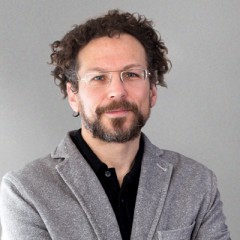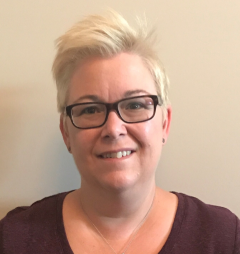On Wednesday, October 25, 2017 CFICE presented Faculty Voices: Stories and lessons for improving your CCE partnerships. The webinar presenters, Colleen Christopherson-Cote, Nadine Changfoot, Charles Levkoe, and Peter Andree, shared stories and best practices that faculty can use for improving their community-campus engagement (CCE) partnerships. Designed for a more intermediate audience, the webinar touched on the following agenda items:
- How faculty can assist in the development of equitable CCE principles and practices
- How faculty can support students in developing long-term CCE relationships and projects
- How faculty can support strengthened institutionalization of community-driven CCE
- Community partner reflections on these community-first recommendations
If you missed out on the day-of presentation, have no fear. We’ve made it accessible below. You can also check out the resources our presenters shared below!
Note: Audio is excellent. Video feed is rough due to connection issues during recording.
Resources:
The following reports and publications highlight our learnings from specific CFICE community-campus engagement projects or are resources that were mentioned in the webinar:
- OCAP Principles
- Read about the results of our partnership work with Station 20 West in Saskatoon in their report, Impacting Community Strength and Sustainability
- Towards a critical service learning in geography education: Exploring challenges and possibilities through testimonio
- Collaboration for Transformation: Community– Campus Engagement for Just and Sustainable Food Systems
- Building effective relationships for community-engaged scholarship in Canadian food studies
- Engaged Pedagogy and Transformative Learning in Graduate Education: A Service-Learning Case Study
Presenters:
 Nadine Changfoot, Associate Professor in Political Studies at Trent University and graduate faculty in Sustainability Studies, Canadian and Indigenous Studies, and Theory, Culture, and Politics. She engages in collaborative, participatory research with arts, environmental, disability, and healthcare communities. Her research includes: 1) methods and ethics of arts-based research creation for multimedia storytelling to tackle negative representations of disability and improve accessibility and inclusion; and 2) complex cross-sectoral partnerships that include the state, non-profit sector, and aggrieved communities for neighbourhood influence and environmental stewardship. She was Academic Co-lead of the CFICE Community Environmental Sustainability (Peterborough-Haliburton) hub in Phase I of the project, collaborating with Abbey Gardens, Haliburton Highlands Land Trust, and GreenUP, and continues to participate as part of the Evaluation and Analysis working group.
Nadine Changfoot, Associate Professor in Political Studies at Trent University and graduate faculty in Sustainability Studies, Canadian and Indigenous Studies, and Theory, Culture, and Politics. She engages in collaborative, participatory research with arts, environmental, disability, and healthcare communities. Her research includes: 1) methods and ethics of arts-based research creation for multimedia storytelling to tackle negative representations of disability and improve accessibility and inclusion; and 2) complex cross-sectoral partnerships that include the state, non-profit sector, and aggrieved communities for neighbourhood influence and environmental stewardship. She was Academic Co-lead of the CFICE Community Environmental Sustainability (Peterborough-Haliburton) hub in Phase I of the project, collaborating with Abbey Gardens, Haliburton Highlands Land Trust, and GreenUP, and continues to participate as part of the Evaluation and Analysis working group.
 Charles Levkoe, Canada Research Chair in Sustainable Food Systems at Lakehead University, has been involved in community food security and food sovereignty efforts for over 15 years and has worked as a community-based researcher, operated an organic farm and led programming with non-profit organizations across Canada and in the Middle East. His research uses a food systems lens to better understand the importance of, and connections between social justice, ecological regeneration, regional economies and active democratic engagement. Working directly with a range of scholars and community-based practitioners across North America and Europe, he studies the evolution of the broader collective of social movement networks which views the right to food as a central component of more sustainable futures. Charles Levkoe integrates his research and teaching through community engaged learning pedagogies and supporting students, community partners and scholars to be actively involved in knowledge cogeneration. In Phase I of CFICE, he worked as the Academic Co-lead of the Community Food Security hub and has continued his work as the Academic Co-lead of CFICE’s Community-Campus Engagement Brokering (food sovereignty) working group.
Charles Levkoe, Canada Research Chair in Sustainable Food Systems at Lakehead University, has been involved in community food security and food sovereignty efforts for over 15 years and has worked as a community-based researcher, operated an organic farm and led programming with non-profit organizations across Canada and in the Middle East. His research uses a food systems lens to better understand the importance of, and connections between social justice, ecological regeneration, regional economies and active democratic engagement. Working directly with a range of scholars and community-based practitioners across North America and Europe, he studies the evolution of the broader collective of social movement networks which views the right to food as a central component of more sustainable futures. Charles Levkoe integrates his research and teaching through community engaged learning pedagogies and supporting students, community partners and scholars to be actively involved in knowledge cogeneration. In Phase I of CFICE, he worked as the Academic Co-lead of the Community Food Security hub and has continued his work as the Academic Co-lead of CFICE’s Community-Campus Engagement Brokering (food sovereignty) working group.
 Colleen Christopherson-Cote is the coordinator for the Saskatoon Poverty Reduction Partnership, Saskatoon Early Years Partnership and the community co-lead for the Evaluation and Analysis working group of CFICE. She lives and works within Saskatoon, Treaty 6 territory and the homeland of the Métis. The interconnect between all three partnerships provides her with the opportunity to catalyze, convene and coordinate community-based work to drive change and build capacity around improving the lives of vulnerable people in Saskatoon. Fostering new and existing community-campus relationships is a core priority of her work, understanding that engaging community throughout research processes is integral to successfully reducing poverty. Colleen is committed to the implementation of UNDRIP and the TRC Calls to Action in both her professional and personal life, recognizing that reconciliation is essential for an equitable, just society.
Colleen Christopherson-Cote is the coordinator for the Saskatoon Poverty Reduction Partnership, Saskatoon Early Years Partnership and the community co-lead for the Evaluation and Analysis working group of CFICE. She lives and works within Saskatoon, Treaty 6 territory and the homeland of the Métis. The interconnect between all three partnerships provides her with the opportunity to catalyze, convene and coordinate community-based work to drive change and build capacity around improving the lives of vulnerable people in Saskatoon. Fostering new and existing community-campus relationships is a core priority of her work, understanding that engaging community throughout research processes is integral to successfully reducing poverty. Colleen is committed to the implementation of UNDRIP and the TRC Calls to Action in both her professional and personal life, recognizing that reconciliation is essential for an equitable, just society.
 Peter Andrée joined the political science department in January, 2007, after a meandering educational journey from the natural sciences, through philosophy and community development, to environmental studies, geography, and now political science. Prior to arriving at Carleton, he was based in the School of Geography and Environmental Sciences at Monash University in Melbourne, undertaking post-doctoral research on rural and food system sustainability in Australia. He completed his PhD in the Faculty of Environmental Studies at York University in Toronto in 2004. He is currently Associate Professor and Associate Chair in the Department of Political Science at Carleton University. He is also cross-appointed in the Department of Geography and Environmental Studies and in the Institute of Political Economy. Prof Andrée’s research focuses on the politics of food and the environment. He practices, and teaches, community-based participatory research methods, and is also the Principal Investigator of CFICE.
Peter Andrée joined the political science department in January, 2007, after a meandering educational journey from the natural sciences, through philosophy and community development, to environmental studies, geography, and now political science. Prior to arriving at Carleton, he was based in the School of Geography and Environmental Sciences at Monash University in Melbourne, undertaking post-doctoral research on rural and food system sustainability in Australia. He completed his PhD in the Faculty of Environmental Studies at York University in Toronto in 2004. He is currently Associate Professor and Associate Chair in the Department of Political Science at Carleton University. He is also cross-appointed in the Department of Geography and Environmental Studies and in the Institute of Political Economy. Prof Andrée’s research focuses on the politics of food and the environment. He practices, and teaches, community-based participatory research methods, and is also the Principal Investigator of CFICE.